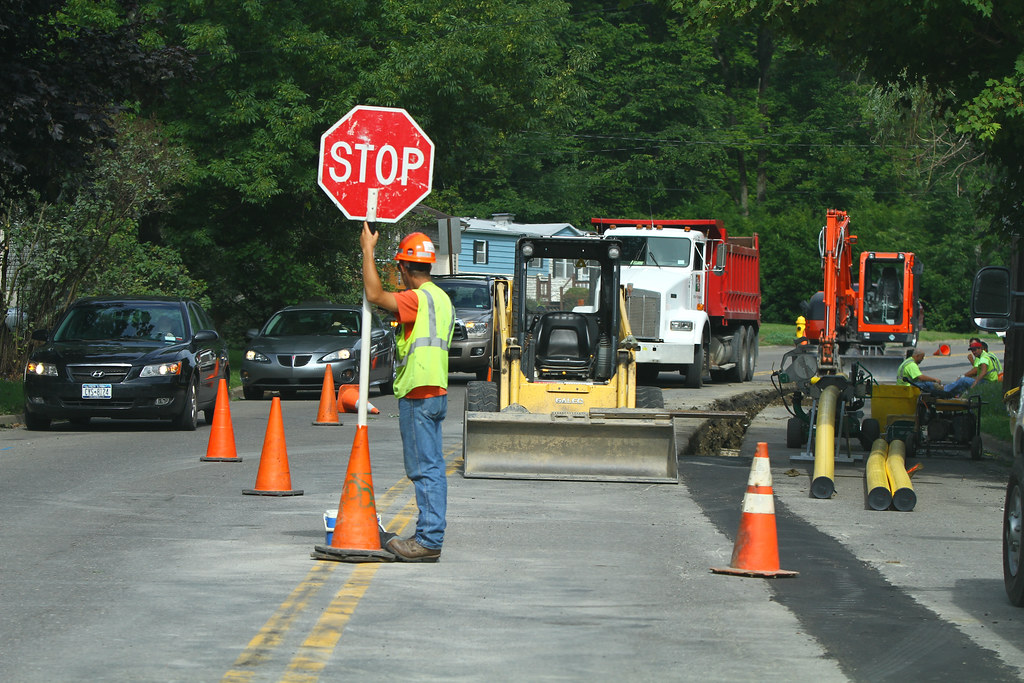ND benefits from bipartisan Infrastructure bill
On Monday, President Joe Biden signed the $1 trillion bipartisan infrastructure bill into law. This bill is designed to fix roads, bridges and airport infrastructure, as well as help in the fight against climate change. North Dakota will receive money to improve various aspects of society, including: clean water, internet access and improved transportation options.
According to the White House, the Infrastructure Investment and Jobs Act is, “The largest long-term investment in our infrastructure and competitiveness in nearly a century.” The plan’s funding will be released over five years, while many of the major projects would begin over the next months or years.
The infrastructure bill had to cut back and include compromises in order to get it passed by both parties. According to the New York Times, the compromises that were necessary to win over a large group of Senate Republicans pared back the President’s ambitions for investing in “human infrastructure.”
Some of these cutbacks included home health care and physical infrastructure to fight climate change. The bill is said to put the United States in a better position to compete against other nations such as China, according to the New York Times.
North Dakota Sen. John Hoeven and Sen. Kevin Cramer supported and passed the bill; however, Rep. Kelly Armstrong voted against the bill in the house. The plan awarded North Dakota with money to make improvements to various areas of infrastructure. According to North Dakota Democratic-NPL, the plan, “Will create millions of jobs, while modernizing our infrastructure, improving and strengthening supply chains and boost U.S. competitiveness for years to come.”
According to the White House, “For decades, infrastructure in North Dakota has suffered from a systemic lack of investment.” The American Society of Civil Engineers gave North Dakota a C- grade on its infrastructure. In North Dakota, there are 444 bridges and over 830 miles of highway in poor condition. The infrastructure bill plans to receive $1.7 billion for federal-aid highway apportioned programs and $225 million for bridge replacement and repairs.
Fifteen percent of North Dakota households do not have an internet subscription. The infrastructure bill will be providing access to the at least 19,800 North Dakotans who currently lack it, according to the White House.
The infrastructure bill will also better prepare North Dakota for natural disasters. “From 2010 to 2020, North Dakota has experienced 7 extreme weather events, costing the state up to $5 billion in damages,” according to The White House. The infrastructure bill is expecting to give North Dakota $21 million to protect against wildfires and $11 million to protect against cyberattacks. The bill is also expected to lower energy costs in North Dakota.
The state is also expecting to receive $355 million to improve the water infrastructure. This will eliminate old pipes that contain lead and ensure clean, safe drinking water. $94 million will be used to improve North Dakota airports.
According to the White House, “The historic Infrastructure Investment and Jobs Act will make life better for hundreds of thousands of North Dakota residents, create a generation of good-paying union jobs and economic growth and position the United States to win the 21st century.”
The plan has caused tension within the Republican party as far-right congress members are criticizing republicans who voted in favor of the bill. According to NBC, “Some of the lawmakers who voted for the bill have received death threats, including Rep. Fred Upton, R-Mich.” Thirteen Republicans in the House and 19 Republicans in the Senate voted in favor of the bill.
According to The Hill, Republicans are opposed the bill because, “Democrats are linking it with their $3.5 trillion reconciliation package to expand social safety net programs and invest in climate change mitigation efforts.”
The bill was originally meant to be passed on Friday Nov.12; however, a group of House moderates would not pass the bill until they received economic analysis from the Congressional Budget Office. The bill was postponed and was signed by Biden on Monday afternoon.
